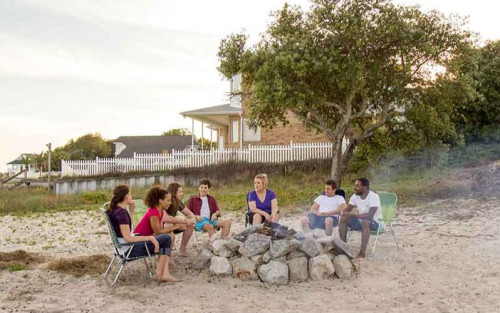
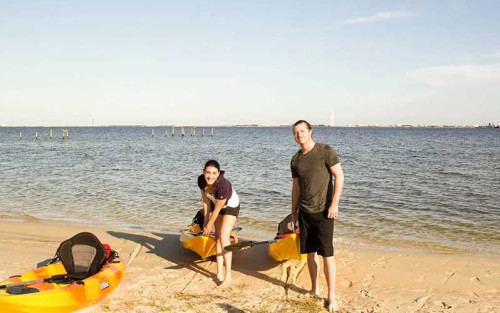
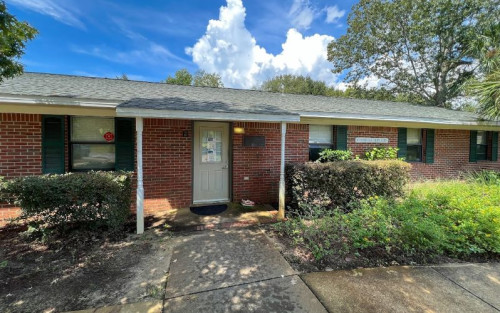
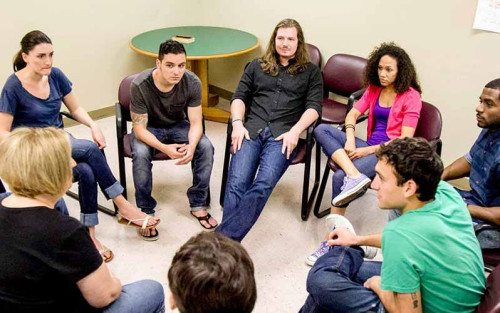
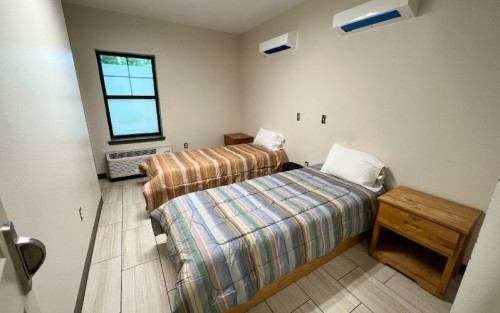




Twelve Oaks Recovery Center
Verified Center
This provider's information has been quality-checked by Recovery.com's Research Team for accuracy and completeness, including center verification through appropriate third-party organizations.
Treatment Focus
This center treats substance use disorders and mental health conditions. You'll receive individualized care catered to your unique situation and diagnosis, learn practical skills for recovery, and make new connections in a restorative environment.
Primary Level of Care
Offering intensive care with 24/7 monitoring, residential treatment is typically 30 days and can cover multiple levels of care. Length can range from 14 to 90 days typically.
Treatment Focus
This center treats substance use disorders and mental health conditions. You'll receive individualized care catered to your unique situation and diagnosis, learn practical skills for recovery, and make new connections in a restorative environment.
Primary Level of Care
Offering intensive care with 24/7 monitoring, residential treatment is typically 30 days and can cover multiple levels of care. Length can range from 14 to 90 days typically.
Provider's Policy
Please call our admissions team for more information on insurance coverage. A knowledgeable member of our team can answer any financial questions you might have, and they can also reach out directly to your insurance carrier to verify and maximize your benefits. This service is free and puts you under no obligation to choose our programming.
Twelve Oaks Recovery Center
Twelve Oaks Recovery Center
About Twelve Oaks Recovery Center
Twelve Oaks Recovery provides treatment for primary addiction and primary mental health conditions. Their levels of care include residential treatment, detox, day treatment (for addiction treatment only), an intensive outpatient program (IOP) for addiction, and lifelong aftercare. Twelve Oaks Recovery creates individualized recovery plans for each client, using comprehensive physical, psychological, and medical assessments to tailor treatment to their needs.
Primary Mental Health Treatment
Twelve Oaks Recovery’s primary mental health program treats anxiety disorders, depressive disorders, bipolar disorder, trauma, and post-traumatic stress disorder (PTSD). Clients in their residential mental health program have at least one individual session with a psychiatrist, a weekly 1:1 session with their primary therapist, daily group meetings, family therapy as needed, and on-site 12-Step meetings. Some of Twelve Oaks Recovery’s evidence-based therapies include cognitive behavioral therapy (CBT), dialectical behavioral therapy (DBT), motivational interviewing techniques, and rational emotive behavior therapy (REBT).
Personalized Addiction Treatment
Twelve Oaks Recovery’s addiction treatment program provides medically monitored detox as needed, residential treatment, day treatment, and IOP.
•In day treatment, clients continue to live at Twelve Oaks Recovery and attend treatment daily, 6 hours a day.
• In IOP, clients return home and come to Twelve Oaks Recovery 3 days a week, 4 hours a day. Both IOP and day treatment focus on group therapy.
After treatment, clients gain access to lifelong aftercare, which includes weekly alumni groups, alumni events, and referrals to continued care from Twelve Oaks Recovery’s alumni coordinator.
Expert, Comprehensive Care
Twelve Oaks Recovery leads treatment with experienced, licensed professionals, including medical doctors, a psychiatrist, masters-level clinicians, advanced practice registered nurses (APRNs), RNs, and counselors. Their group therapy sessions offer clinician-led lectures, process groups, recreational therapy, and client-led circle groups. Twelve Oaks Recovery’s recreational therapies include kayaking, swimming and bonfires on the beach, yoga, and volleyball.
Highlights from the Center
Highlights
These highlights are provided by and paid for by the center.
On-site Medical Detox
Master's Level Therapists
Beach Access
30+ Years in Business
Center Overview
Treatment Focus
This center treats substance use disorders and mental health conditions. You'll receive individualized care catered to your unique situation and diagnosis, learn practical skills for recovery, and make new connections in a restorative environment.
CARF Accredited
CARF stands for the Commission on Accreditation of Rehabilitation Facilities. It's an independent, non-profit organization that provides accreditation services for a variety of healthcare services. To be accredited means that the program meets their standards for quality, effectiveness, and person-centered care.

Twelve Oaks Recovery Center
Insurance Accepted
Cash Pay Rates
Estimated Cash Pay Rate
Center pricing can vary based on program and length of stay. Contact the center for more information. Recovery.com strives for price transparency so you can make an informed decision.




Recovery.com Verified Listing
Recovery.com verified that the name, location, contact information and license to operate for this treatment provider are valid and up-to-date.

CARF Accredited

Licensed

NAATP Member
Recovery.com is an independent, third-party mental health resource. Verification does not imply endorsement and does not guarantee the quality of treatment services.
Meet Your Care Team

Joe Holland
Chief Executive Officer
MS

Jenny Nelson
Chief Financial Officer

Timothy A. Gooden
Medical Director
M.D., FASAM, DABAM

Melissa Brooks
Director of Nursing
BSN, MA, MBA
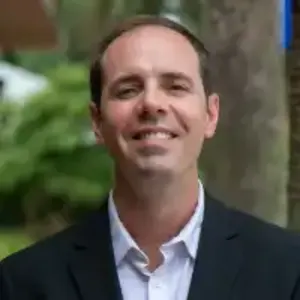
Crawford Winstead
Director of Business Development
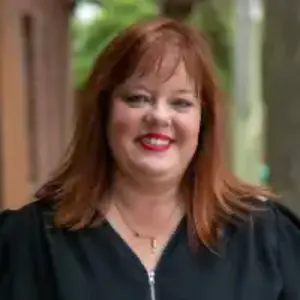
Kim Warren
Director of Admissions and UM
BS, MS
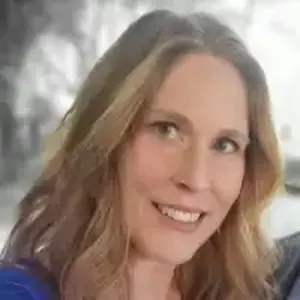
Brenda Maynard
Director of Human Resources
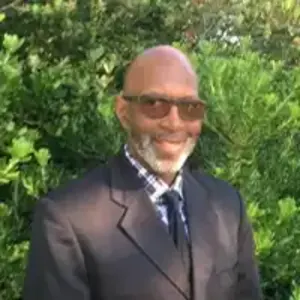
Robin King
Director of Recreational Therapy
MS
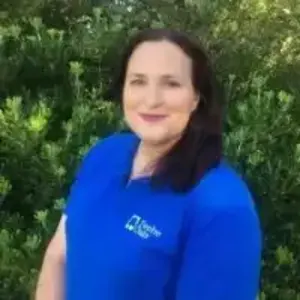
Arrietta Schlott
Plant Operations
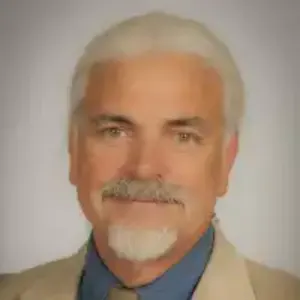
John C. Hayes
Psychiatrist
M.D.
Supportive Medication for Recovery
Medication-Assisted Treatment (MAT) is an evidence-based approach that pairs FDA-approved medications with counseling to treat addiction. The medications are used to reduce cravings, ease withdrawal symptoms, or block the effects of substances. More about MAT
Methadone
Naltrexone
Buprenorphine
This center accepts patients receiving MAT prescribed elsewhere for opioid use disorder, but does not provide MAT.
Note: Treatment centers offer different forms of MAT—such as oral tablets, dissolvable films, or monthly injections—and their policies can vary based on state regulations, provider preferences, and insurance coverage. Because of these differences, it's best to contact the center directly to learn what options are available and what might be right for your situation.
Your Care Options
Specializations
Anxiety
Anxiety is a common mental health condition that can include excessive worry, panic attacks, physical tension, and increased blood pressure.
Bipolar
This mental health condition is characterized by extreme mood swings between depression, mania, and remission.
Co-Occurring Disorders
A person with multiple mental health diagnoses, such as addiction and depression, has co-occurring disorders also called dual diagnosis.
Depression
Symptoms of depression may include fatigue, a sense of numbness, and loss of interest in activities. This condition can range from mild to severe.
Post Traumatic Stress Disorder
PTSD is a long-term mental health issue caused by a disturbing event or events. Symptoms include anxiety, dissociation, flashbacks, and intrusive thoughts.
Veterans
Patients who completed active military duty receive specialized treatment focused on trauma, grief, loss, and finding a new work-life balance.
Trauma
Some traumatic events are so disturbing that they cause long-term mental health problems. Those ongoing issues can also be referred to as "trauma."
First Responders Program
Paramedics, police officers, firefighters, and others join in a specific First Responders program, usually focused on trauma, grief, and work-life balance.
Who We Treat
Veterans
Patients who completed active military duty receive specialized treatment focused on trauma, grief, loss, and finding a new work-life balance.
Treatment Services
Day Treatment
In a PHP, patients live at home but follow an intensive schedule of treatment. Most programs require you to be on-site for about 40 hours per week.
Detox
Detox fully and safely removes toxic substances from the body, allowing the next steps in treatment to begin with a clean slate.
Intensive Outpatient Program
In an IOP, patients live at home or a sober living, but attend treatment typically 9-15 hours a week. Most programs include talk therapy, support groups, and other methods.
Outpatient
During outpatient rehab, patients attend a structured treatment program while continuing to live at home.
Residential
In a residential rehab program, patients live onsite, with access to daily treatment and 24-hour care. An average stay is 30-90 days.
Accepts Patients with Prescribed Medications for Opioid Use Disorder
The provider accepts patients with prescribed medications for addiction treatment, also known as Medication-Assisted Treatment (MAT), for opioid use.
Prescribes Medications for Opioid Use Disorder
The provider prescribes medications for addiction treatment, also known as Medication-Assisted Treatment (MAT), for opioid use.
Approaches
Spiritual Emphasis
Spirituality connects patients to a higher power and helps strengthen their recovery, hope, and compliance with other treatment modalities.
Evidence-Based
A combination of scientifically rooted therapies and treatments make up evidence-based care, defined by their measured and proven results.
Individual Treatment
Individual care meets the needs of each patient, using personalized treatment to provide them the most relevant care and greatest chance of success.
Twelve Step
Incorporating spirituality, community, and responsibility, 12-Step philosophies prioritize the guidance of a Higher Power and a continuation of 12-Step practices.
Therapies
1-on-1 Counseling
Patient and therapist meet 1-on-1 to work through difficult emotions and behavioral challenges in a personal, private setting.
Meditation & Mindfulness
A practiced state of mind that brings patients to the present. It allows them to become fully aware of themselves, their feelings, and the present moment.
Experiential Therapy
With this approach, patients heal by doing. Therapists help patients process difficult emotions to speak, using guided activities like art or dance.
Family Therapy
Family therapy addresses group dynamics within a family system, with a focus on improving communication and interrupting unhealthy relationship patterns.
Recreation Therapy
In recreation therapy, recovery can be joyful. Patients practice social skills and work through emotional triggers by engaging in fun activities.
Relapse Prevention Counseling
Relapse prevention counselors teach patients to recognize the signs of relapse and reduce their risk.
Twelve Step Facilitation
12-Step groups offer a framework for addiction recovery. Members commit to a higher power, recognize their issues, and support each other in the healing process.
Conditions We Treat
Anxiety
Anxiety is a common mental health condition that can include excessive worry, panic attacks, physical tension, and increased blood pressure.
Bipolar
This mental health condition is characterized by extreme mood swings between depression, mania, and remission.
Depression
Symptoms of depression may include fatigue, a sense of numbness, and loss of interest in activities. This condition can range from mild to severe.
Post Traumatic Stress Disorder
PTSD is a long-term mental health issue caused by a disturbing event or events. Symptoms include anxiety, dissociation, flashbacks, and intrusive thoughts.
Trauma
Some traumatic events are so disturbing that they cause long-term mental health problems. Those ongoing issues can also be referred to as "trauma."
Substances We Treat
Alcohol
Using alcohol as a coping mechanism, or drinking excessively throughout the week, signals an alcohol use disorder.
Benzodiazepines
Benzodiazepines are prescribed to treat anxiety and sleep issues. They are highly habit forming, and their abuse can cause mood changes and poor judgement.
Co-Occurring Disorders
A person with multiple mental health diagnoses, such as addiction and depression, has co-occurring disorders also called dual diagnosis.
Cocaine
Cocaine is a stimulant with euphoric effects. Agitation, muscle ticks, psychosis, and heart issues are common symptoms of cocaine abuse.
Drug Addiction
Drug addiction is the excessive and repetitive use of substances, despite harmful consequences to a person's life, health, and relationships.
Ecstasy
Ecstasy is a stimulant that causes intense euphoria and heightened awareness. Abuse of this drug can trigger depression, insomnia, and memory problems.
Heroin
Heroin is a highly addictive and illegal opioid. It can cause insomnia, collapsed veins, heart issues, and additional mental health issues.
Psychedelics
Hallucinogenic drugs—like LSD—cause euphoria and increased sensory experiences. When abused, they can lead to depression and psychosis.
Languages
Care Designed for Your Needs
Personal Amenities
Amenities
Special Considerations
Religion-Based Track
Patients can join faith-based recovery tracks to approach recovery with others in their faith, healing in a like-minded group with similar goals.
First Responders Program
Paramedics, police officers, firefighters, and others join in a specific First Responders program, usually focused on trauma, grief, and work-life balance.
Activities
Off-Site Activities
Smoking and Vaping Policy

Learn More About the Center
A Typical Day
Browse a daily overview of treatment at Twelve Oaks Recovery.
The Recovery Mile Podcast
Twelve Oaks Recovery hosts a podcast on recovery—listen to their most recent episode here.
More About Twelve Oaks Recovery
Learn more about Twelve Oaks’ mission, beliefs, and their levels of care.
What to Bring
Twelve Oaks Recovery lists items to bring to treatment, and what not to bring.
What people are saying
Treatment
3.5
Accommodations
3.4
Food & Nutrition
3.7
Value
3.5
Pete
Reviewed 08/08/21
Review from Rehabs.com
lr
Reviewed 04/20/18
Review from Rehabs.com
Aurora
Reviewed 02/02/24
Review from Rehabs.com
SB
Reviewed 11/22/19
Review from Rehabs.com
Michael McCorvey
Reviewed 06/25/18
Review from Rehabs.com












